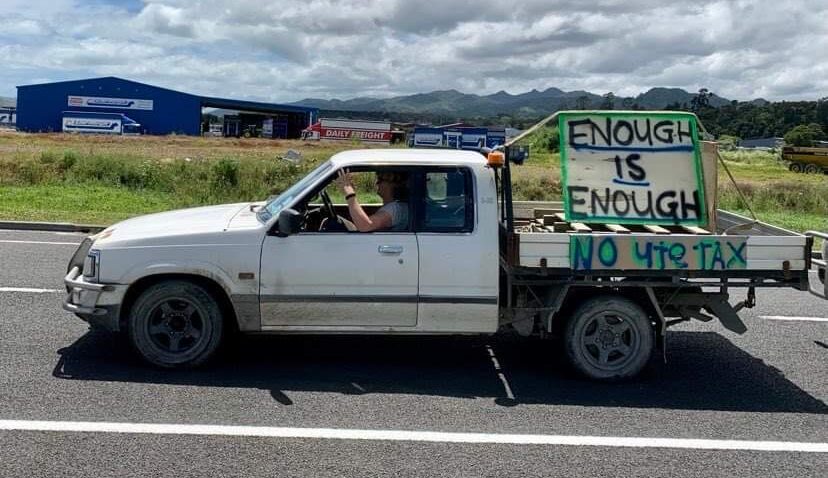Federated Farmers are opposed to increases to the ‘Ute Tax’ announced this morning, says transport spokesperson Mark Hooper.
“This is just another cost on a productive sector already under huge pressure with rapidly increasing costs and slipping commodity prices.
“We’ve opposed the Ute Tax from day one because farmers don’t have viable or reliable alternatives to get the job done on their farms – and now the government is increasing it,” Hooper said.

“Farmers aren’t driving utes as some sort of status symbol. We have a genuine need for reliable four-wheel drive vehicles to tow equipment and get around our farms safely.”
The government will increase the maximum fee charged on the registration of a new ute to $6900 (up from $5175 previously), and the registration of a used ute to $3450 (up from $2875).
Rebates for zero emission vehicles will reduce from $8625 to $7015 for brand new models, and increase from $3450 to $3507 for used imports.
For vehicles that emit one to 100 grams, such as plug-in hybrids and smaller hybrids, the rebate will reduce by around $1500 to $1700 for new vehicles and by $200 to $500 for used vehicles.
“Farmers shouldn’t be taxed on their work vehicles to subsidise wealthy Tesla owners in Remuera and Karori. That’s just wrong.
“[This] announcement is a bitter pill to swallow for farmers who are already being hammered with all sorts of cost increases,” Hooper said.
“Instead of heaping new costs on to a productive sector, the government should be focusing on sorting out the state of our pothole-riddled rural roads.
“If they don’t get on to that soon, we might need a ute to go anywhere.”
Transport Minister Michael Wood said more than 100,000 rebates had been granted since the government’s Clean Car Discount scheme came into effect in 2021.
“We currently have one of the fastest uptakes of EVs in the world,” he said.
“The scheme is successfully exceeding industry and government projections, with 20 percent of all new passenger car sales being electric in 2022. A substantial increase from eight percent in 2021.
“The scheme is facilitating an increase in the number of EVs entering the fleet we did not expect until 2027. As planned we are further targeting the scheme to maintain its success, and ensure it will be self-funding until its next review.”
The scheme was now forecast to reduce emissions by 3.4 million tonnes by 2035, he said.
“That’s an additional 50 percent out to 2035 over and above what was forecast when it started. It will deliver twice the emissions reduction forecast between the start of the scheme and 2025.
“The [scheme] is doing what we set out to achieve, which is reduce transport emissions and provide transport options to New Zealanders that will lower household costs is the long term.”




